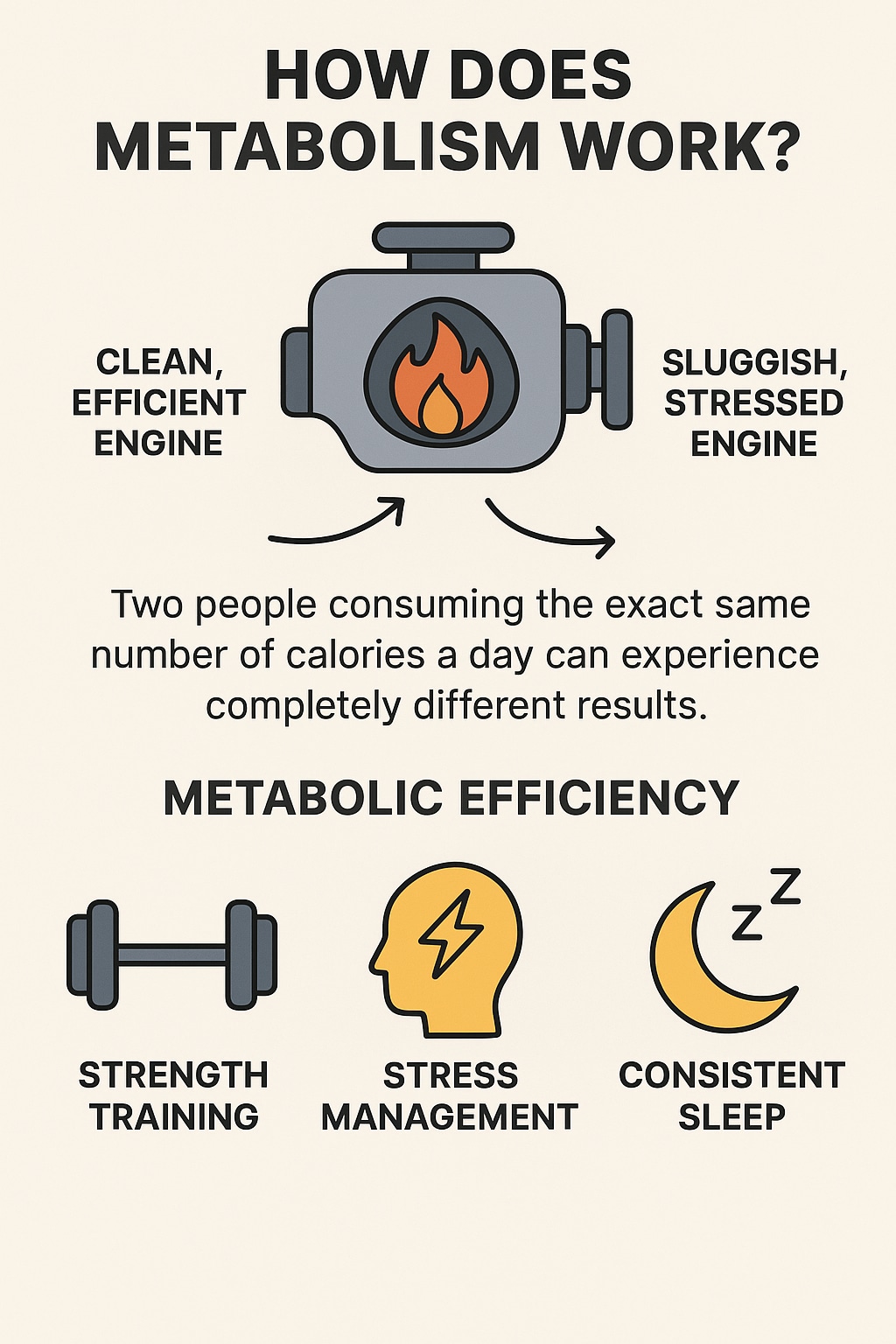When it comes to weight loss, most people believe it’s all about the numbers – counting calories in and calories out. But the truth is, not all calories are created equal. The body metabolises calories from sugar, protein, and fat in very different ways, and understanding this science can completely change how you approach weight loss. It’s not just about eating less – it’s about knowing what you eat, how your body uses it, and how internal factors like hormones and metabolism shape the results you see.
 Shivohaam Bhatt explains how different kinds of calories affect weight loss. (shivohaamofficial.com)
Shivohaam Bhatt explains how different kinds of calories affect weight loss. (shivohaamofficial.com)
Celebrity fitness coach Shivohaam Bhatt, who has worked with prominent figures like Amitabh Bachchan, Ranbir Kapoor, Jacqueline Fernandez and Aamir Khan, told HT Lifestyle that weight loss isn’t just about burning more calories than you consume – the popular “eat less, move more” formula oversimplifies the process. In reality, it’s far more complex than that.
He explains, “The truth is, all calories are not the same. A hundred calories from sugar behaves completely differently in your body than a hundred calories from eggs or paneer. Weight loss isn’t just about numbers – it’s about how efficiently your body uses those numbers.”
The biology behind the myth
Shivohaam describes calories as units of energy and how this energy is utilised by the body depends on hormones, metabolism, digestion and muscle mass. He explains, “For example, when you eat protein, your body spends more energy digesting and absorbing it compared to fat or carbs – this is known as the thermic effect of food. That’s why high-protein meals not only preserve muscle but also burn more calories during digestion.”
However, when you eat processed carbs and sugar, the body metabolises it differently. The fitness coach explains, “In contrast, processed carbs and sugar spike insulin, your body’s storage hormone. Chronically elevated insulin levels push your system to store more fat, particularly around the belly, even when total calories aren’t excessive.”
How does metabolism work?
Shivohaam compares the body’s metabolism to an engine. He elaborates, “Think of your metabolism as an engine. A clean, efficient engine (supported by sleep, hydration, and training) burns fuel smoothly. A sluggish, stressed engine wastes energy and stores more as fat.”
 Metabolism works differently for different people.(Image generated via ChatGPT)
Metabolism works differently for different people.(Image generated via ChatGPT)
According to the fitness trainer, two people consuming the exact same number of calories – say, 1,800 a day – can experience completely different results: one may lose weight, while the other could actually gain it. The difference lies in each individual’s metabolic efficiency, or the body’s ability to turn food into energy rather than storage.
“Strength training, stress management, and consistent sleep all make your metabolism more ‘intelligent’. They help your body partition calories toward repair and muscle rather than fat,” adds Shivohaam.
Food quality over quantity
According to the trainer, true weight loss is not about cutting out food or starving yourself, but being mindful about what you eat. He recommends, “Choose foods that improve insulin sensitivity, digestion, and recovery – like lean proteins, healthy fats, and fibre-rich vegetables. Avoid foods that confuse your metabolism – processed sugars, seed oils, and constant snacking.”
Shivohaam highlights that when your hormones are balanced, your body burns fat naturally, even while at rest. Focusing only on calorie intake often fails to deliver lasting results, as it overlooks the internal chemistry that truly drives fat loss.
He concludes, “Weight loss isn’t a math problem – it’s a metabolic conversation. Train your body to use energy efficiently, nourish it with quality food, manage stress, and sleep deeply. When your system functions cleanly, you won’t just lose weight – you’ll gain control over how your body uses every single calorie.”
Note to readers: This article is for informational purposes only and not a substitute for professional medical advice. Always seek the advice of your doctor with any questions about a medical condition.

